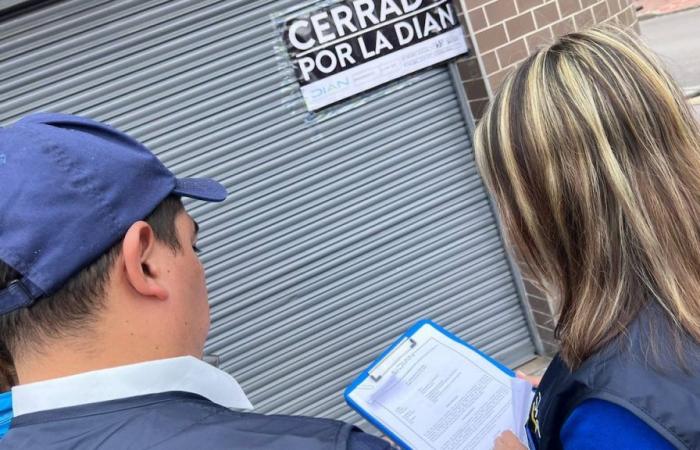
After the three-day closure of the traditional Doña Segunda picket line, located in the Plaza de Mercado 12 de Octubre in Bogotá, the National Tax and Customs Directorate (Dian) spoke about the reasons why the entity has the tools to close a company.
As explained by Dian, the first thing that is done is an orientation and awareness visit to the establishments, in which it is verified if the business is issuing electronic invoices.
Dian recalled that on December 15, 2020, the calendar for the adoption of electronic invoices in the country ended, a process that was completed with pilot tests, massive training and resumption of orientation visits — which were brought forward in 2023 — to support and facilitate the authorization of those responsible for billing.
Likewise, he highlighted the entity that also made available to companies the software to do it for free if that was the option they chose to comply with the obligation.
“In 2023, more than 50,000 visits were carried out and only in 3,300 of them a statement of objections was formulated, which leads to the possible closuree of the establishment once due process is provided and all guarantees for the right of defense are granted.
Stages for closing a business
According to Dian, several stages or steps must be completed before the entity makes the decision to close a business and this can take several months, during which time entrepreneurs are given the opportunity to comply with the regulations.
1. Officials of the Dian vistestablishments and if they find any irregularity or non-compliance, the entity formulates a statement of objections that the company can respond by exposing the reasons for non-compliance and giving explanations to avoid sanctions. To do this, the person responsible has a period of 10 business days.
3. If the charges are confirmedn, the entity issues a resolution that sanctions the establishment with its closure for three (3) days. Once again, the business has 10 business days to respond, this time to file an appeal for reconsideration with the intention that the sanction be reconsidered.
4. The Tax Statute andestablishes that the appeal must be analyzed and ruled on within a maximum period of 10 business days. If the ruling confirms the sanction, the closure must occur within the following 10 business days.
5. The Tax Statute It also contemplates that, at any time, the establishment that is not complying with the billing requirements can benefit from the payment of a fine to avoid the three-day closure. This fine can be 5%, 10% or 15% of the gross operating income of the month prior to the date of the visit that triggered the process.
The Dian confirmed, in its statement, that these closures are the result of a process that exhausts each of the instances within the times established by the norm, which are subject to rigorous legal and evidentiary support.
“Tax evasion is a crime. When people demand electronic invoices in their purchases and payments for services, they help combat it and ensure that Colombia has the resources to improve the quality of life of its inhabitants,” the entity reiterated.
So far in 2024, Dian has closed 119 establishments for not making electronic invoices.





